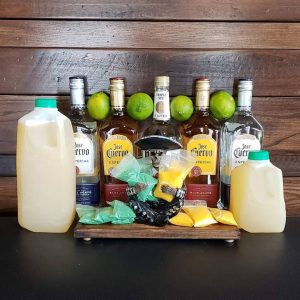
OCEAN CITY — Some hospitality business practices borne out of necessity because of COVID-19 could become standard operating procedures when the crisis is over if the state comptroller gets his way.
When COVID-19 emerged in March and Gov. Larry Hogan declared a state-of-emergency, restaurants and bars were closed to the public and many went to a carryout and delivery model including modified ways of selling alcohol. The state and the allied local liquor boards relaxed the rules for selling beer, wine and spirits through carryout or delivery and mixed drinks in sealed containers for off-site consumption.
While certainly not ideal, the relaxed rules sustained many businesses for several weeks, allowing them to generate some revenue and keep people employed. As the state moved through the early stages of Hogan’s recovery plan, restaurants and bars at first were allowed to open with outdoor seating only and later 50% of indoor seating with distancing, mask requirements and other directives in place.
That’s where the hospitality industry still stands in the recovery plan now, but through the various stages, many restaurants and bars have maintained their carryout and delivery of alcohol models. Maryland Comptroller Peter Franchot on Thursday, after a Zoom meeting with Restaurant Association of Maryland representatives, said he would like the state to consider keeping the relaxed alcohol sales rules in place when the public health crisis abates.
“The participants on our Zoom call are integral to the hospitality sector that employs nearly 460,000 people throughout our state,” he said. “It is a powerful job creator and economic engine that has been devastated by the COVID-19 pandemic.”
Franchot said his office has worked closely with Hogan throughout the crisis to limit the devastation to the hospitality industry with creative measures such as deferring state business taxes for three months and allowing restaurants and bars to get back on their collective feet. Relaxing the rules regarding off-premise alcohol sales has been part of that equation.
“Since Governor Hogan declared his state of emergency. I’ve been proud to work with him to find creative ways to help these amazing businesses keep the lights on,” he said. “We have also made it possible for restaurants, bars and taverns to sell beer, wine and spirits for off-site consumption, through both carryout orders and door-to-door delivery. We have even allowed restaurants to sell mixed drinks in sealed containers for off-site consumption.”
Franchot said he would like to give the General Assembly an opportunity to make the relaxed liquor sales rules permanent.
“These are sensible reforms, I believe, to Maryland’s outdated alcohol statutes, and I believe these temporary changes should be made permanent,” he said. “It’s why I’ve asked Governor Hogan to allow these changes to remain in place through the 2021 legislative session, which would give the Maryland General Assembly an opportunity to memorialize these changes into law.”
Some restaurants and bars across Maryland have not reopened and many will likely to months to fully recover, even after the COVID crisis is over. Franchot said it will likely take outside-the-box ideas for many businesses to be made whole again and relaxing the rules could help.
“This is just one of many strategies we must adopt to keep this sector up and running,” he said. “Every restaurant, bar or tavern that closes has a ripple effect on suppliers, vendors, business partners, employees and the larger community that benefits from their presence. Let’s be aggressive and innovative here.”

